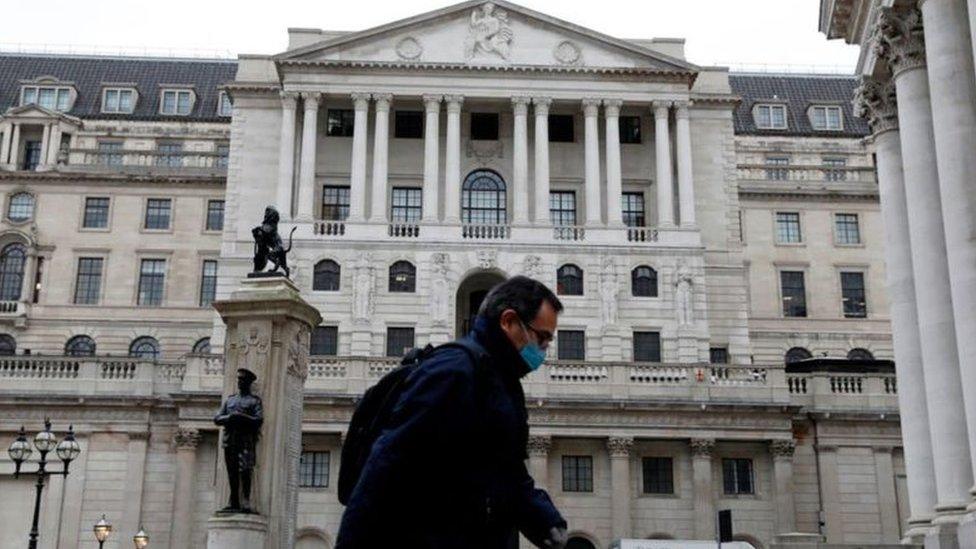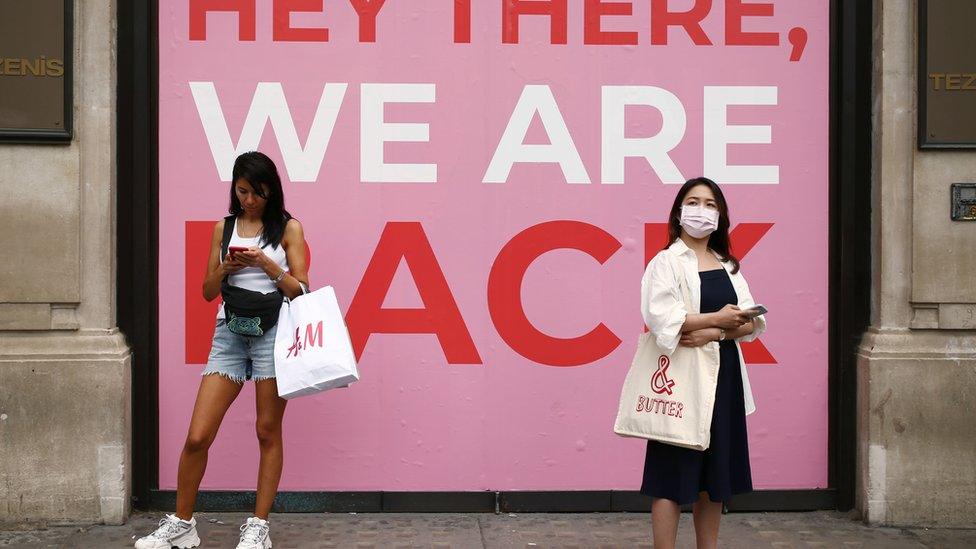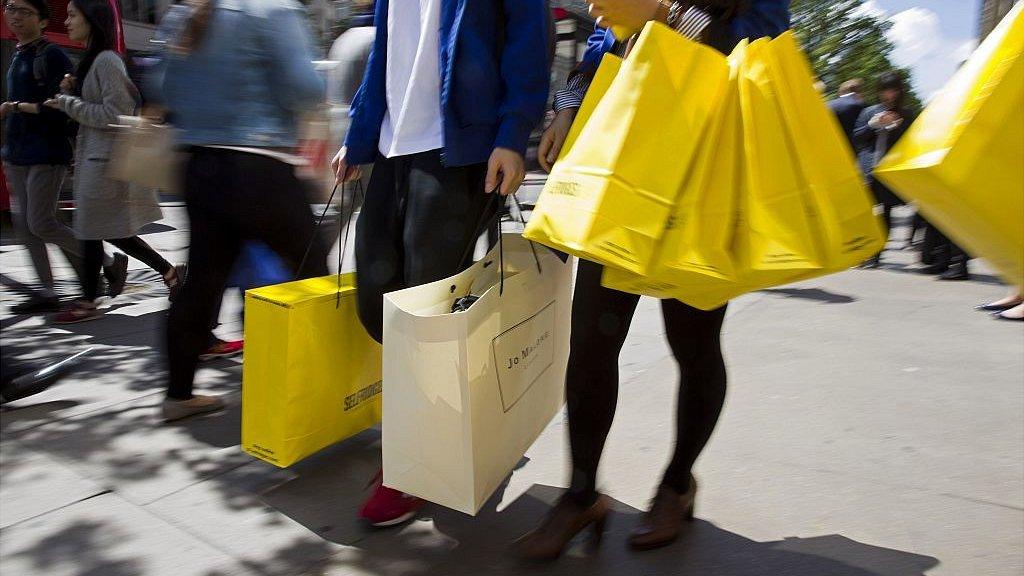Is the Bank really hooked on quantitative easing?
- Published

It is the biggest economic intervention of the past two decades. It has had a significant impact on the wealth of millions of Brits. And its deployment may have helped save lives during the pandemic. But it is rarely debated - or even really even understood by politicians.
"It" is, of course, quantitative easing.
That's when the Bank of England and other global central banks buy up hundreds of billions of pounds in government debt using newly-created electronic money.
But on Friday, parliamentarians have warned that the Bank is becoming addicted to QE, which they call a "serious danger to the long-term health of the public finances".
The House of Lords economic committee heard from central bankers around the world about a policy that was deployed in Japan, the Eurozone and the US, in the wake of the financial crisis and then again during the pandemic.
With the Bank set to own £895bn of debt - almost entirely in government gilts - peers have said it should be subject to more scrutiny.
They argue that the policy has undoubtedly pushed up prices of assets such as houses - increasing wealth inequalities by transferring wealth away from non-homeowners and to those who have a property. However the Bank has said that young people benefitted from QE because it shortened the recessions.

But the Lords' report argues that during Covid, the Bank went further. It was "widely perceived" to have bought up the debts exactly as required by Government, matching the size and speed of borrowing to fund huge spending bills, it said. That risks undermining the Bank's independence from government and its fight against inflation.
The Bank's answer to this charge is? Essentially, it says that it will eventually sell the government bonds it has bought since the beginning of the crisis. And while QE has undoubtedly helped keep government borrowing costs very low, it says the actual aim of the policy is to support the economy and hit its inflation target of 2%.
But Peers are unconvinced. They have demanded greater transparency around talks between the Treasury and the Bank of England about how any losses from the programme will be financed.
'Clear plan'
They also want "a clear plan on how QE will be unwound" and, they say, "this plan must be made public".
Until now the noises have been rather vague on this issue. In theory, the unwinding of such the policy could significantly increase long-term interest rates paid by companies and homeowners. But if it is ignored forever, Peers fear the inevitable result will be prolonged inflation.
This is an argument few want to have right now, and one that has been delayed because it can be delayed. T
This influential report puts some pressure on the Bank of England for answers over a little-understood policy that has affected the entire population.
More than almost all Cabinet decisions.
Related topics
- Published18 June 2020

- Published1 November 2022

